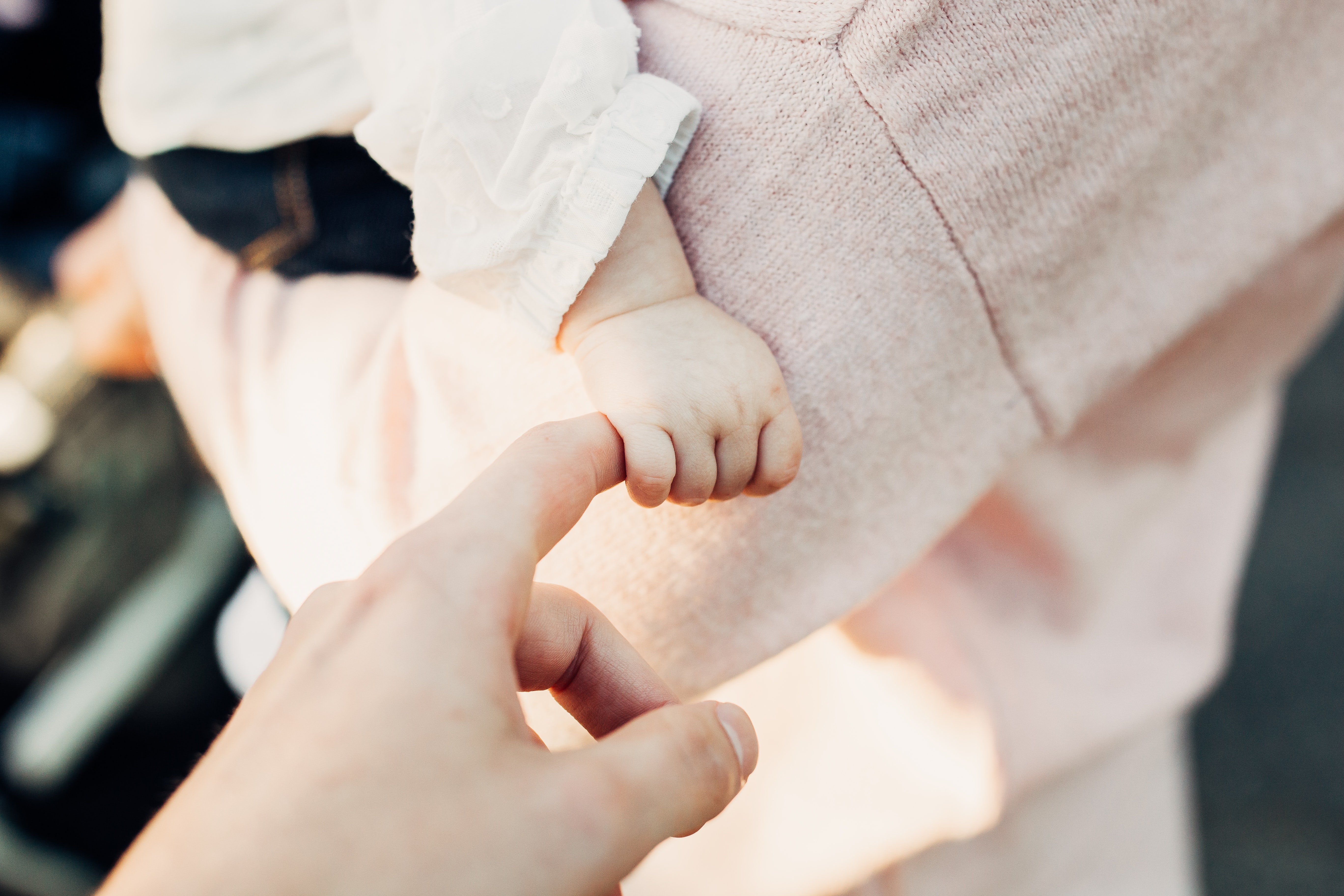
by rossanahead | Jan 19, 2012 | children, Education, family, parenting
By Maridol Rañoa-Bismark
“What do you like more? High school or college?” I ask my son, who’s on his third year at the university.
“College,” he replies, without missing a beat.
In college, he tells me, you get to meet more people from all walks of life. You also have more freedom, the freedom to choose your teachers, your schedule, and your extra-curricular activities.
If high school is the time to form cliques, then college is the time to widen one’s social circle, and to create as many of those circles as one can. No longer bound to one section, your teenager can hop from one college to another like a butterfly flitting from one flower to the next. He may make friends with schoolmates who are so unlike him, or who come from a province or a country that he has never been to.
I myself am fascinated at the big university my son goes to. When I enter the building, the guard greets me “Good morning,” thinking that I’m a professor. Since my age and eyeglasses allow me to assume another identity, I get to enter different school buildings and walk through an ongoing exhibit or diorama. Why, I even get to know about job openings for students. They’re posted all over the bulletin board!
Another big bonus: finding out what events my son has signed up for the month, at least we have something to talk about at the end of the day.
I pepper him with questions: Did you find the career talk useful? Are you joining the college fair? Did you meet anybody interesting in the outreach program?
It’s a great way to bond with somebody who’s turning out to be harder and harder to catch up with.
School activities are generally safe subjects to discuss; he won’t recoil when I ask about them. Sometimes, when I’m feeling lucky, I segue to more delicate matters like grades, teachers, and girls. I step on the brakes when he suddenly turns quiet or starts answering my questions with a standard, “It’s okay.”
It’s his way of saying, “I don’t want to talk about it.”
I’ll just try another day. He’ll ask for my opinion when he needs it.
For now, I enjoy the sights and sounds of the university. I walk around the campus that it is my child’s second home and try to see it through his eyes. And here’s what I saw: all these young happy people, eager to learn, eager to grow, and excited about all their tomorrows. I am instantly filled with joy and say to myself, “Wish I were in college too!”
Photo by Mateus Campos Felipe on Unsplash

by rossanahead | Jan 11, 2012 | children, family, parenting, woman
By Tina Arceo-Dumlao
Some popular movies, songs, and television shows would have us believe that marriage is a fate almost worse than death, often referred to as a trap, the end of the happy life or a one-way ticket to endless misery. But marriage can be the exact opposite, believe it or not.
Instead of a trap, marriage can free us to become better people. It may be the end of the carefree life but also the beginning of a more meaningful and fulfilling existence. If you decide to have children and become parents, it adds another dimension to your relationship. Instead of misery, marriage can indeed lead us to our real destiny on earth, the reason for our being.
Last Dec. 11, 2011, my husband and I celebrated our 18th wedding anniversary and we like to believe that we are as happy now as we were that day in 1993 when we became man and wife in the eyes of God, if not more.
And so the young and restless colleagues and friends who are about to get married ask me, how do you keep the marriage happy and fulfilling?
Here are a few tips based on what worked for me these past years.
Pick your battles. Not everything is worth fighting over just so you can say you’ve ‘won’ an argument. Fight for the big decisions you really believe in such as what kind of a parent you’d like to be or where you’d like your children to go to school, for instance, and just agree to disagree on others. You win some, you lose some. Compromise is at the heart of any working marriage.
Decide on money matters as early as possible. Assuming that both of you work, it is best to have separate individual accounts and then maybe a joint account for joint expenses. You’ve earned your money, so you’ve certainly earned the right to spend it the way you wish. But of course, agree to share in big expenses, just so you won’t end up paying for everything yourself while your spouse spends on luxuries.
Fix the schedule for the holidays. One of the major sources of heartaches is the holiday schedule. Talk about where you want the family to spend Christmas and New Year’s or even Sunday lunches or dinners. Once that’s fixed, there will be less haggling over where to spend these important dates, and less whining over “but we always go to your family.”
Respect ‘alone’ time. It’s not healthy for any relationship – even marriage – to be perpetually in each other’s pockets. We are individuals, after all, with needs and wants that cannot always be met by your spouse. So go out with friends, have a weekend alone, or just go somewhere you can recharge. It’s not a crime. Remember, there is a you, there is a he or she and there is an us.
Don’t try to change your spouse. We all have our quirks: some are annoying, some are cute. Don’t try to get rid of each and every one of them just to fit your notion of what a spouse should be. Nobody is perfect. Not even you, so don’t expect your spouse to be perfect. I always tell the romantics out there, if you were annoyed by one habit before you got married, chances are you will still be annoyed years later. So can you take it?
Lastly, share loads of laughter. There’s nothing like laughter to cure any ills in a relationship. I always say, if you can laugh about practically anything and everything with your husband or wife, then you’re on your way to a fulfilling journey together that will hopefully last as long as you both shall live.
Photo by Drew Coffman on Unsplash

by rossanahead | Jan 9, 2012 | children, family, parenting
By Romelda C. Ascutia
Come to my house on a weekday morning, and you’d think it has been the site of a police raid. You know the aftermath of such an intrusion: The place is all topsy-turvy after investigators have combed it inch by inch in search of contraband. That’s how our house greets me when I come down from the bedroom in the mornings. But the culprits are not the search authorities; it’s my two boys.
My children, a college freshman and a high school sophomore, have convinced me that they are old enough to take care of themselves and don’t need my help to prepare them for school in the morning. This is not an act of total altruism on their part, mind you. Truth is, the boys don’t want me hovering over them because I drive them nuts. I nag them to hurry up, to take a bath already, to brush their teeth properly. I pester them with questions. Why didn’t you tell me you have a button missing from your polo? Why don’t you ever bring an umbrella (or at least a jacket) when it’s raining? Why won’t you get a haircut? Why do you ignore the fruits I place on the table?
Because our mornings have become a strain on both sides, we have agreed that I will get all the boys’ needs ready the night before—the hot water in the jug, the cereals and milk in the jars, the bread for toasting snug in the bread box, uniforms hanging neatly in the cabinets—and they will do the rest. The next morning, my duty is to simply call out to the boys when the alarm sounds off, and I go back to sleep when I hear them stomping downstairs.
This arrangement has worked well for all of us so far. I believe this setup teaches the boys to be more independent and self-reliant. If I’m around, they treat me as a convenient lost-and-found center: Ma, did you see my ID/belt/notebook/toothbrush/watch? Can you please go upstairs and get my P.E. shirt? I’m already in the bathroom so could you throw me my towel?
As for me, as a night person, I am not at my best at dawn. I become more energetic as the hours pass and get my second wind late in the night, when everyone is asleep. That’s when I whirl about straightening things, sweeping the floor, cleaning the bathroom, folding the laundry—all those things other moms normally do in the first light of day. Before I head upstairs, I survey my handiwork with a little smile, knowing that everything is in its proper place.
So there’s been a wonderful truce in my household ever since we hit on this morning deal. But I am still far from completely content. After they leave I survey the “damage” my independent young adults have inflicted: beds unmade, dirty clothes and wet towels on the floor, cabinets hanging open with folded clothes in disarray, used plates on the dining table, toothbrushes by the sink, pools of water near the bathroom door for me to slip on. Books and notebooks that are not scheduled for use that day sit in chairs. Receipts, tissue paper, and other whatnots lie on the floor, having missed the trash can.
And so the next hour or so is used to clear up the trail of mess my boys have left behind. But like any hopeful mom I truly believe that with time—and more nagging on my part—my mischievous raiders will become better behaved. Until then, the morning raids will continue.
Featured Photo from Mrs H’s Favorite Things

by rossanahead | Jan 6, 2012 | career, children, parenting, woman
By Leslie G. Lee
I became an aunt almost a decade ago, when my older sister gave birth to her first son, Nathan, who is now nine years old. At that time, I had no inkling that my life would change upon the arrival of this little boy. Sure, I was excited about the newest addition to our family, but what I didn’t expect was just how much I would grow and evolve as a person by being an aunt.
Pre-aunthood, I was a driven, workaholic advertising account executive. I’d put in long hours in the office and obsessed about work day and night, so determined was I to climb and claw my way up the ladder. My life was centered on my career and nothing else.
Nathan changed all that.
I remember when my parents informed me that my sister was in labor in the wee hours of the morning. That day was a particularly busy one for me, as I was juggling various accounts and neck-deep in paperwork. I wanted to be with my parents in the waiting area but since I couldn’t, I arranged for flowers and gifts to convey my congratulations. My sister had to stay in the hospital for two more days after giving birth, and I wanted more than ever to visit her and go to the maternity wing to get a glimpse of my first nephew.
But I couldn’t, because I was buried with work.
When I saw the baby, however, it was love at first sight.
My obsession with work was replaced by my passion of seeing my nephew grow up. I grew resentful of my work since the long hours meant less time with him. Finally, I decided to quit my job in advertising and sought another job that would offer a more balanced work-life.
Apparently, I had made the right decision, for I now have three precocious nephews, and among their slew of aunts, I am the one whom they see most often.
Just as every person has his or her own style of parenting, I too have my own way of being an aunt to these three little ones. I’m a hands-on aunt: babysitter, caregiver, and surrogate mother on call. My family knows that I would cancel or postpone meetings or plans with friends at the drop of a hat, should my sisters and their husbands require someone to pinch-hit as a parent. I spoil them rotten with gifts almost every month and always buy them souvenirs whenever I go abroad. In fact, in one of my business trips, I bought more stuff for them than myself! I indulge their whims, understand and love their quirks, and bond with them at every opportunity.
Everyone gets a glimpse of parenthood one way or another, but for me, being a hands-on aunt not only gives me that, but also provides a good training ground for future parenthood. I’ve picked up a lot of tips and skills in my 10 years of being an auntie: from the practical and technical (changing diapers, cradling a newborn, putting a baby to sleep) to the emotional and psychological (dealing with three very distinct personalities, instilling good manners and virtues, satiating their curiosity with truthful yet carefully crafted answers).
And more than just learning the ropes and prepping myself for future parenthood, my “auntie” style has given me an idea of how I would be as a mother. But then again, we will never really know, not until I have a child of my own.
A recovering workaholic, Leslie G. Lee is a staunch advocate of work-life balance. Her passion for words has led her to work for and contribute to a number of publications in the Philippines and Singapore. Currently, she is taking a break from the frenetic world of publishing, in order to rejuvenate her creative juices, focus on her personal growth, and, most importantly, spend more quality time with her three adorable nephews.
Photo by Joshua Reddekopp on Unsplash

by rossanahead | Jan 4, 2012 | career, children, Education, Lyra Pore, parenting, woman
By Lyra Pore Villafana
Every weekend I drive to the nearest aquatic center to take swimming lessons with other adult learners. My classmates are all parents to young children: one is a mother to a sixteen-year-old girl and a seven-year-old boy, another has three children all in grade school and yet another has a two-year-old son.
“I’m doing this for myself,” the mom to the two-year-old said last week. “I work and look after my family, but I need to get away from it all every now and then.”
“Me too,” the mother to the three kids agreed. “I don’t work but I need a bit of time for myself so I don’t go crazy.”
“I have the same reason for coming here,” I revealed. I work full-time and do my best to look after my young family too. It reinvigorates me when I am able to spend even just two hours a week doing something for myself. This is my “me time.”
The mother to the teenage girl and grade-school boy listened intently. She had told me on a separate occasion that she enrolled in swimming class to help her manage her asthma.
My swimming buddies and I are all Asians who have migrated to Australia with our families. None of us is really aspiring to become a strong swimmer. Of course, we want to be able to survive should we fall into the water but to us, it’s not simply about the swimming.
Life overseas is so different to what we’ve all been used to. We don’t have extended families to support us, we and our husbands have to do all the house work ourselves as there is no domestic helper who can do the cleaning, washing, cooking and other chores for us, and none of us has the benefit of live-in nannies. Amidst all these, many of us strive to hold a job as well.
But doing something for oneself isn’t unique to Asian moms coping with the stresses of building a new life in a different country. A few weeks ago, my family was invited to the home of an Australian family ― well the wife was Australian while the husband was British. They had a twelve-year-old daughter who’s been born and raised in Australia.
Every week the wife, who’s an operations manager in a chain of nursing homes, attends piano lessons. “I do it for my brain. I have to keep it working,” she said. So once a week, she spends an hour improving her piano playing techniques.
I do not view these one- or two-hour excursions without husband and children selfish at all. A busy mom has to take care of herself too. It does the whole family a lot of good when the mother takes a bit of time to do something that will help keep her mentally, emotionally and physically healthy.
Photo by Serena Repice Lentini on Unsplash

by rossanahead | Dec 20, 2011 | children, family, grandparenting, parenting, Ruth M. Floresca
By Ruth Manimtim-Floresca
A friend of mine shared something on his Facebook wall last night. It’s a link to a story he wrote about his dad. Soon after, other friends, including myself, started sharing our own experiences as sons and daughters.
Most of us acknowledged that our parents are human beings too and are bound to make mistakes like we do. We may have been hurt by some of the things our dads and moms did during our growing up years, but we recognize that we have done stuff that caused them pain as well.
Many of my friends and I have already lost our dads or our moms, or both. Some, many years ago; others, just a few months back. But one thing we expressed is how we all love our parents and respect them.
Me? I remember my Tatay as a strict man who can be quick with the belt when my siblings and I made mistakes while we were still kids. When he and our mom had misunderstandings, he would be gone for days, staying in my Lola’s house before coming back with his sense of humor intact. I loved listening to his corny jokes! I also remember him as a person who people go to when they need help. He was generous to a fault and would even lend his last peso to a friend in need.
He was a good granddad to my kids and my nephew. Up until now, 11 years after he passed away, our relatives and people in our town still talk about him with fondness. I also don’t think anybody has yet broken his record for having the longest line of mourners during the long walk to the cemetery when we brought him to his resting place.
When I get asked about the most precious memories I have of my Tatay, I’ll always recall how he would take my youngest son, barely a year old at the time, every morning for a walk around the town while he chitchats with his many friends. The two of them were a common sight in the area which seems to be still engraved in peoples’ memories. It is gratifying that whenever we visit my mom in Laguna, neighbors and friends would look at Daniel and exclaim how big he has grown from that little baby that my Tatay used to bring everywhere. It always gladdens my heart to hear that.
Nobody is perfect and it will serve us well to look beyond a person’s imperfections to appreciate the goodness within. I’ve long since forgiven and forgotten whatever shortcomings my dad had. What I want to remain are the happy memories he left behind.
Photo by Jon Tyson on Unsplash






